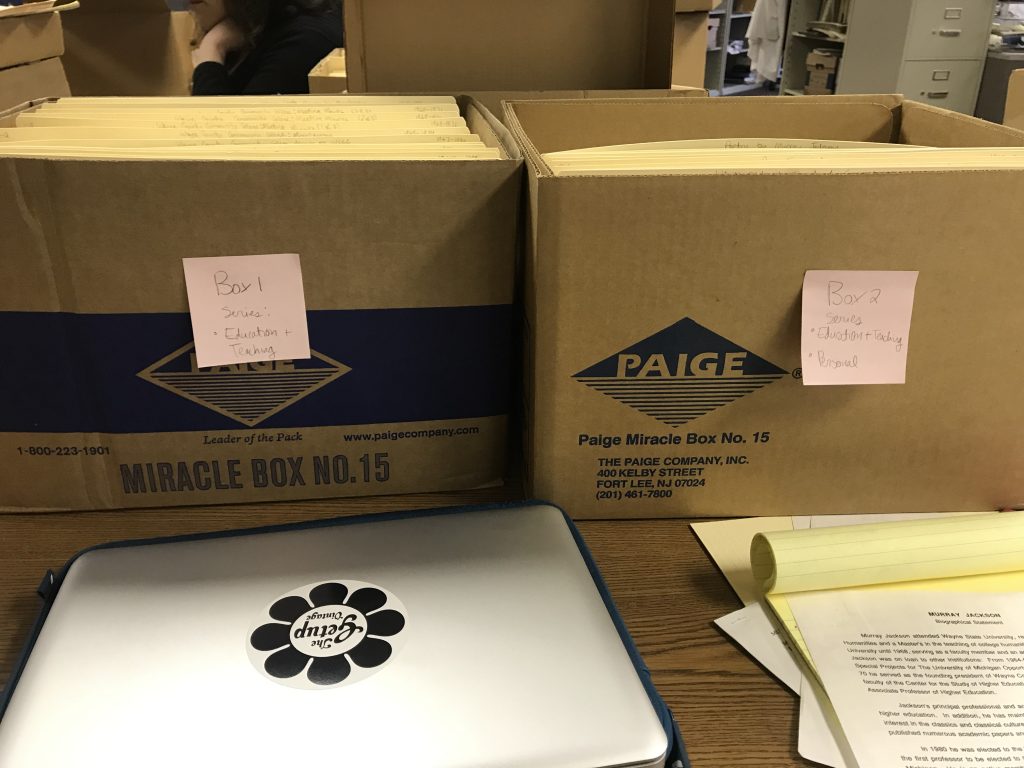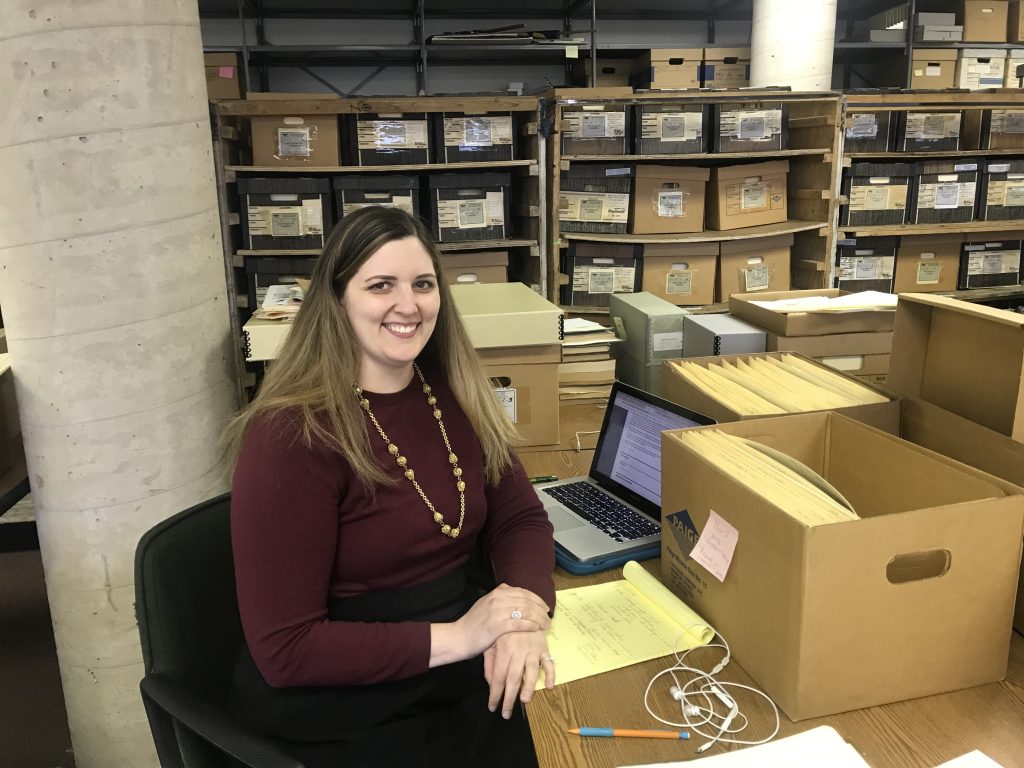Alternative Spring Break Staycation at the Reuther
By Colleen Cirocco
Have you ever romanticized a career only to realize that your expectations did not match reality? Friends and family members of mine have gone into careers such as nursing, teaching, and massage therapy, investing time and money into degrees and training, only to discover that the actual day-to-day was not what they expected. Instead of feeling a self-satisfied glow from helping people, they were often met with environments that left them feeling unappreciated and rundown.
I worried a bit about this for
myself when entering the archives program, having never actually worked in a
library or archive. I entered the program knowing that I connected to the broader
mission of preserving the public record, providing access to researchers and
students, and shaping collective memory through the inclusion and amplification
of marginalized voices. That all sounds very well and good, but would I
actually like doing the work? Would it be boring and tedious? Would I be any
good at it? I decided that the only way to find out would be to actually
immerse myself in the role of an archivist-but how? I work a traditional 9-5 office
job, which conflicts with the urge to drop everything and explore a new career.
Luckily, SIS provides an amazing opportunity for working adults, and to all
students, to have short term, immersive learning experiences in archival
settings through Alternative Spring Break.
This year I participated in ASB
through a project at the Walter P. Reuther Library and Archives of Labor and
Urban Affairs at Wayne State. I was given the task of processing a small
collection from start to finish, from doing an initial inventory to creating a
finding aid on ArchivesSpace. The collection itself was compelling and
challenging. Compelling because it was the personal papers of a prominent
Detroit educator, activist, and poet, Murray Jackson. Challenging because it
led me to question the ethics of my role as a white woman in deciding how the
life of a black man should be cataloged and described in perpetuity. Power
comes with every archival decision, and was I the right person to have this
power? These types of theoretical knots had been intriguing thought experiments
during class discussions, but now I was in the role of the active agent. Luckily
I had two great mentors, Shae Rafferty and Sarah Lebovitz. Sarah related her
experience of processing a similar collection in the beginning of her archival
career, and was able to talk through my discomfort both theoretically and practically.
I also saw behind the curtain and
felt what a 40-hour work week was like in an actual archive. The pacing was
different than my for-profit job, the purpose was different. I wasn't there to
meet a bottom line, I was there to advance knowledge and to honor the history
of Detroit. Leaving at 5pm from my regular office I often feel completely
exhausted and insignificant. Leaving at 5pm from the archive I actually felt
energized and that I had contributed something valuable to the world.
I ended the week with a tangible, professional accomplishment, a published finding aid in a university archive that I will be able to discuss in future job interviews. More importantly, this experience helped me realize that after seeing the day-to-day life of an archivist, the role still excites me. My instincts and admiration of the lofty goals of the profession put me on the right path, and I'm grateful for those who helped me see that this is a real job that I can see myself happily doing.

